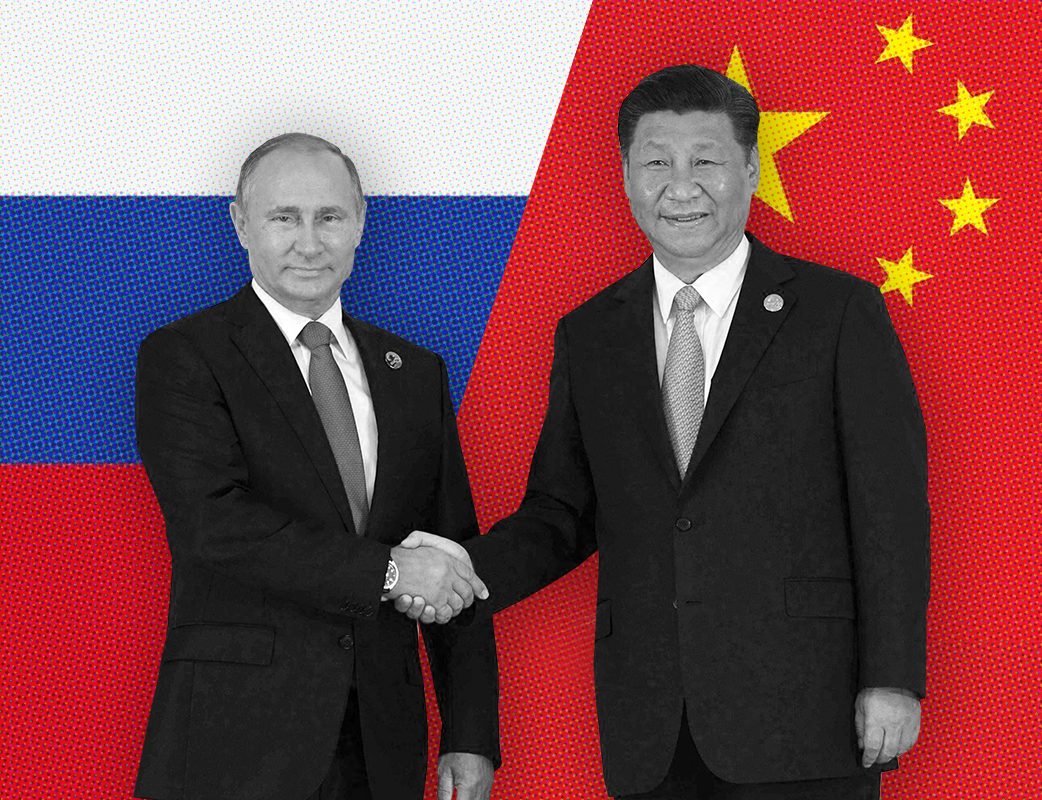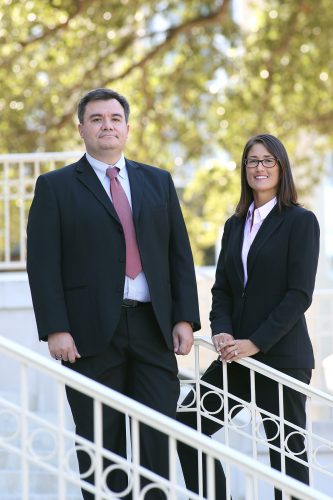
Professors Track China-Russia Alliance
A new research initiative illuminates six decades of Sino-Soviet relations to help predict future patterns.
Scholars visiting the archives in Moscow must follow the Kremlin’s strict rules. Permission must be granted in advance, and Russian authorities decide which documents are released. Cameras and scanners are forbidden. Photocopies are nearly impossible to obtain.
With only pen and paper, Kiril Tochkov made a startling discovery. “For a month and a half, I was writing like the medieval monk that was copying the Bible,” said the associate professor of economics, who scoured historic documents for his research on Sino-Russian relations with Carrie Liu Currier, associate professor of political science and director of Asian Studies.
Tochkov uncovered secret communications that illuminate the fragile relationship between Russia and neighboring China. In the 1950s and ’60s, Soviet diplomats in Beijing were listening to every speech given by Chinese leaders. They expected to hear some gratitude for Soviet efforts that helped launch industrialization and modernize the People’s Republic of China.
“The Soviet ambassador or Soviet diplomat would count how many times he heard ‘thank you’ to the Soviet Union for economic help,” Tochkov said. “For example, he would say that ‘In a speech that lasted for 40 minutes, the Chinese leader mentioned the Soviet Union only three times,’ or, ‘He would not mention the economic help we provided at all.’ ”
A snub was relayed back to the Soviet Foreign Ministry, Tochkov said. “They said it is very sad that our Chinese comrades were not expressing enough or sufficiently often enough the economic help that the Soviet Union was providing.”
The sensitivity shown by the Soviets was “constant, appearing in almost every document” from that era, he added. “That is an indication that there was a worsening [relationship] between the two countries.”
Fickle Friendship
A new research initiative at TCU explores the ever-changing relationship between Russia and China — two superpowers with growing muscle in the global economy and world affairs.

Kiril Tochkov, associate professor of economics, and Carrie Liu Currier, associate professor of political science and director of Asian Studies, launched an interdisciplinary research study on the implications of the strategic partnership between China and Russia. Photo by Carolyn Cruz
“It’s not the kind of alliance that we often see from a Western point of view,” Currier said. “Both [China and Russia] have a history of distrust with each other, and the marriage of interests is temporary. It could change in the next two or three years, and that would not be surprising.”
What distinguishes the TCU project is the extensive analysis of both the political and economic ideologies in China and Russia over the past six decades (1950-2010).
Currier’s expertise in Chinese foreign policy, combined with Tochkov’s in Asian economics, provides for a deeper analysis of the Sino-Russian partnership than is found in current literature. “We’re examining 60 years of history to give us a sense of how they align politically and economically,” Currier said. “The past helps us inform the future.”
The two professors theorize that changes in Sino-Russian relations mirror the degree to which the two countries are in sync — not just on the economic front, but in political ideology as well. Discord in both areas has triggered years of animosity or serious conflicts bordering on war.
Times of friendship and cooperation are marked by harmony in political and economic views — as today’s partnership reflects. “Right now, the political and economic ideologies in Russia and China are aligned,” Tochkov said. “Both have more or less authoritarian political systems coupled with a state-capitalist economic model, which suggests that the partnership between them is strengthening.”
Lessons for Policymakers
Historical patterns will be used to create a novel analytical model that could predict the course of Sino-Russian relations, Tochkov and Currier said. Such a model could shed light on the interplay between political and economic ideologies, and also gauge the “border effects” that impact trade.
“These give us an idea about the costs involved when goods cross the border and represent the actual hurdles in the trade and investment relations,” Tochkov said.
Today, the border effects between China and Russia are relatively high, meaning the official policy of close ties has not yet reached the ground.
“We see Presidents [Vladimir] Putin and Xi [Jinping] shaking hands and signing a bunch of treaties, but Chinese goods entering Russia still face logistic and bureaucratic obstacles at the border,” Tochkov said. “We can argue that the strategic partnership at the macro level translates into deeper economic integration between the two countries only if these border effects decline in the near future.”
Changes in the intensity of the Sino-Russian partnership will have immediate implications for Northeast and Central Asia, where the two countries are deeply involved, he noted.
Booming Interest
TCU faculty members hope their new Sino-Russian research will elevate the university’s Asian Studies program and further the boom in enrollment.
“There’s been a lot of increasing interest in Asia across the country, and in the developing Chinese economy and the implications that would have in the United States — as well as for the global economy,” Currier said. “When I first took over the program [in 2006], we had six students and had to recruit really hard. Now we have no problem maintaining 16 to 20 students for an interdisciplinary minor.”
The enrollment surge is a reflection of the changing tide, Currier said, “realizing that to do business globally, you have to know something about China.”
Currier and Tochkov plan to integrate their research into the classroom, with students participating in the empirical analysis.
“One of the great things about TCU is that when the faculty has an active research agenda, students get the full extent of that,” Currier said. “As we conduct the research, they actually learn about the process, the difficulties, and the political and economic challenges of doing this kind of research in these countries.”

Your comments are welcome
Comments
Related reading:
Features, Research + Discovery
China and Russia’s Relationship: A Q&A and Timeline
Carrie Liu Currier and Kiril Tochkov discuss trust, differences and rivalry between the two superpowers.
Features
Warrior for Peace
Nobel laureate Leymah Gbowee mobilized women to demand an end to Liberia’s second civil war.
Research + Discovery
Germán Gutiérrez Believes in the Power of Music
The director of orchestras at TCU says music is a way for people to work together and put aside political differences.